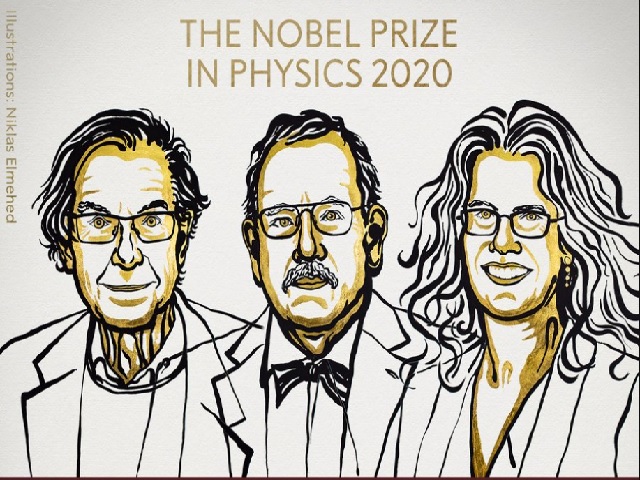
The 2020 Nobel Prize in Physics was awarded jointly to Roger Penrose from Britain, Reinhard Genzel from Germany and Andrea Ghez from the US for making discoveries that have shaped our modern understanding of the universe and black holes.
Half the prize went to Penrose, “for the discovery that black hole formation is a robust prediction of the general theory of relativity,” through mathematical models, Penrose proved that the formation of black holes was possible, relying solely on Albert Einstein’s general theory of relativity.
The other half of the prize was split between Genzel and Ghez, for discovering “that an invisible and extremely heavy object governs the orbits of stars at the centre of our galaxy.”
